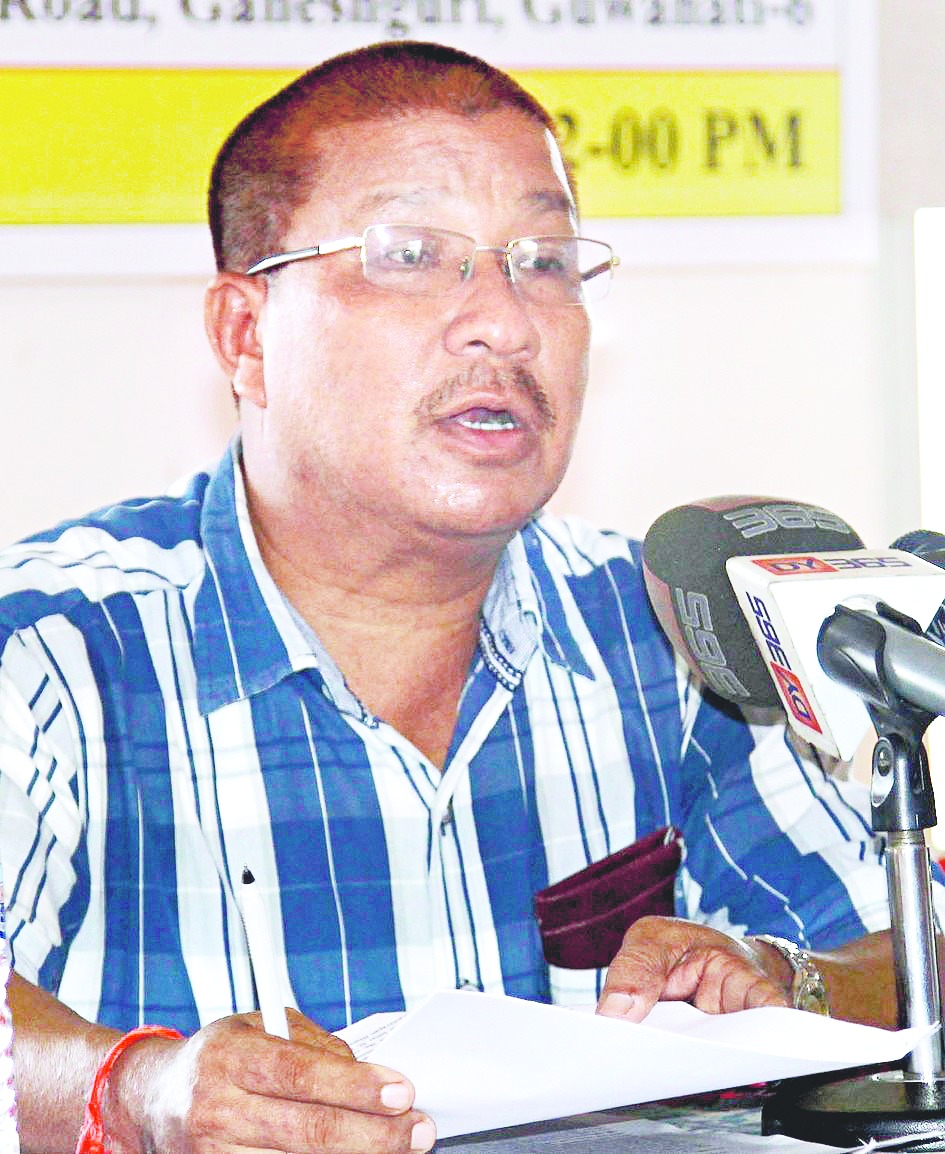

Guwahati, Jan. 28: The clash between the Asam Sahitya Sabha and Bodo Sahitya Sabha has reached the Union home ministry.
The general secretary of the Bodo Sahitya Sabha, Kamala Kanta Mushahary, told The Telegraph today that the Union home ministry had this morning asked them for the reasons behind their conflict.
"We have submitted all documents regarding our stand on the controversy," he said.
The Asam Sahitya Sabha, during a press meet held here yesterday, criticised the Bodo Sahitya Sabha for its language policy, which it had made public at its recent annual session in Chirang district.
The policy was endorsed by a delegates' meeting of the Sabha.
"The Asam Sahitya Sabha is creating an unnecessary controversy without studying the proposals of the Bodo Sahitya Sabha. Our resolution on language policy was historic and based on the National Language Policy. It will be helpful for the students," said Mushahary.
The policy deals with the languages to be taught to students studying in elementary classes in different parts of Assam.
As different linguistic groups live in the state, education policy makers have always been in a fix on the issue.
Last year, the Assam elementary education department held two workshops on the new language policy for students from classes VI to VIII.
Accordingly, the Asam Sahitya Sabha submitted a language policy to the State Council for Educational Research and Training, Assam (SCERT), supporting the teaching of three languages to a student. The policy was rejected by the Bodo Sahitya Sabha, which said that in a multilingual state like Assam, a "partial four-language policy" should be adopted.
According to the Asam Sahitya Sabha's language policy, "students whose mother tongue is Assamese should learn the language of an indigenous community of the state. For example, in the Bodoland Territorial Areas District, an Assamese-medium student should learn Bodo and the Bodo, Rajbongshi, Nepali and Bangla-speaking people should learn Assamese. Students from Karbi Anglong, Dima Hasao, Barak Valley and the Mising Autonomous Council, Tiwa Autonomous Council and Rabha Hasong Autonomous Council areas should learn Assamese in addition to their mother tongues. Similarly, Assamese-speaking students of these areas should also learn the language of these communities. Hindi and other language-speaking people should learn Assamese."
According to the Bodo Sahitya Sabha's language policy: "The first language should be the mother tongue and the second language should be English. For their third language, the students should get 50 per cent marks for Hindi and 50 per cent for the regional language (Eighth Schedule language). Assamese-medium students will get 50 per cent marks for Hindi and 50 per cent marks for Bodo in the third language section; Bodo medium students will get 50 per cent marks for Hindi and 50 per cent marks for Assamese. In the Barak Valley, the students will get 50 per cent marks for Hindi, and 50 per cent marks for Assamese. Bengali-medium students in the BTAD will get 50 per cent of the marks for Hindi and the 50 per cent for Bodo or Assamese as their third language."
"Our language policy is based on the National Language Policy, according to which English should be the second language and Hindi the third language if a student's mother tongue is not Hindi. However, we have made some modifications. Instead of allotting 100 marks for Hindi alone, we have decided to allot 50 marks for it and 50 marks for a regional language," said Mushahary.
"Making English a second language will be helpful for the students. For example, for an Assamese-medium student in the BTAD, learning English as second language will be more helpful for him than learning Bodo," Mushahary said.
The Asam Sahitya Sabha yesterday rejected the BSS's policy.
"Under no circumstances can we accept Assamese as the third language in any area of the Brahmaputra Valley where the Assamese language and culture is deeply rooted. It would have been different had the area been Barak Valley or the hill districts," said the president of the Sabha, Dhruba Jyoti Borah.
Sources in the Sabha told The Telegraph that following the controversy, the chief minister's office also called up Borah today and discussed the situation.











